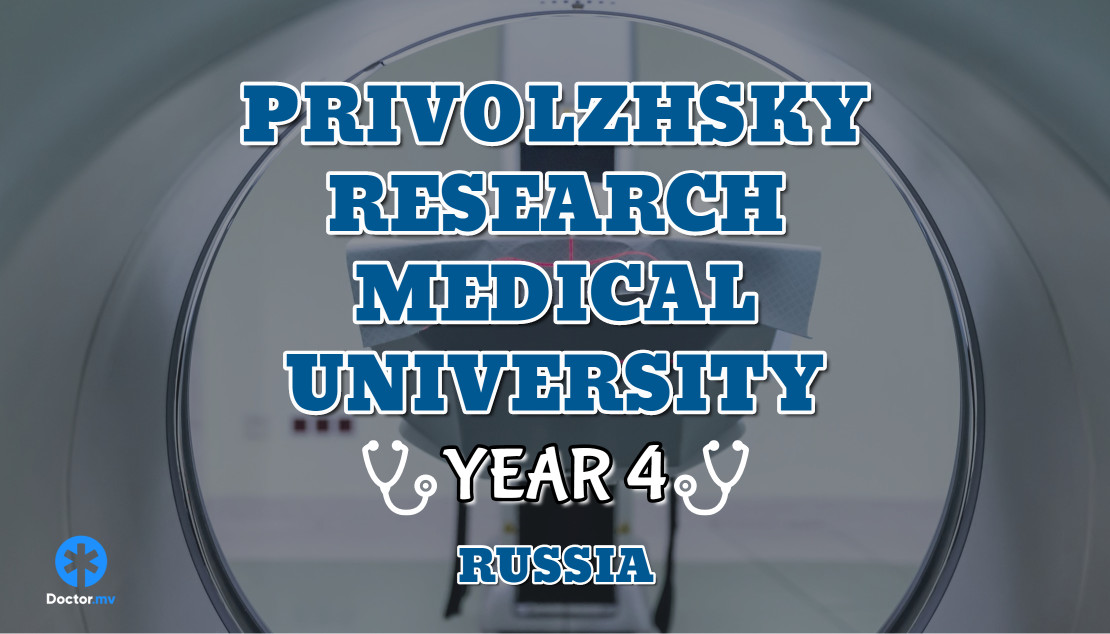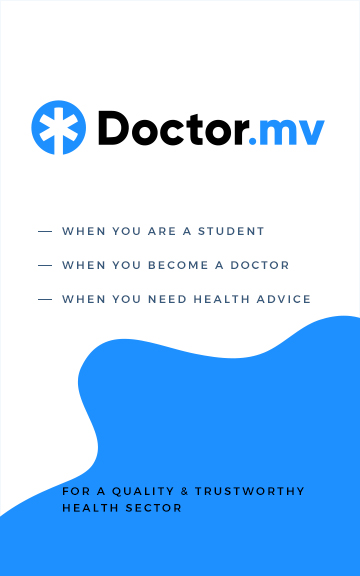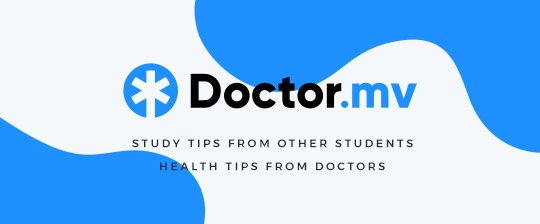I'm MANIU MOHAMED and this is My Medical Student Life

Nabeel Ibrahim
Published on: 09/10/2018
Fourth Year Russia Privolzhsky Research Medical University Hassan Maniu MohamedUniversity
Privolzhsky Research Medical University (formerly Nizhny Novgorod State Medical Academy)
Current Year
Fourth
Medical Specialty Interested in
General Surgery & Neonatology
One Word that Describes You
Achiever
Most Intriguing subject in Medical School
Internal Medicine
What was your path to Medical School like?
I remember the first day of every academic year, the teacher asks all the students "Who do you want to be when you grow up?". Each year most of my colleagues come up with a different answer, but me, I was consistent and never changed my response. I have been working hard towards achieving this dream. I have keen interest in reading about new medical discoveries and advancements in the field of medicine. As long as I could remember, I have always dreamed of becoming a doctor. InSha Allah a great one.
I completed my O'level studies in Dharumavantha School and A'levels in CHSE. After High School, I worked in AMDC Clinic. I gained a lot of first hand experience and basic knowledge from the best physicians in Male' City. The consultation and physical examination begins the time patient walks into the room. Reading the patient's facial expression & body language, compassion, empathy and encouragement towards the patient and also the importance of doctor-patient relationship are simple yet fundamental lessons I learned during my time at the clinic. I hopefully will carry them to my future daily clinical practice.
Moreover, during my time at AMDC Clinic I got the chance to work for Global Hospital Group. They are one of the prestigious Hospital chains in India, who partnered with AMDC clinic. My job was identifying and making all necessary arrangements for patients who require treatments not available in Maldives. At the time, I met many patients with oncology related issues who were in need of chemotherapy & surgical intervention. It was a privilege to bring some form of hope to these patients with me being part of it. This experience opened my eyes on our current medical status and how much we need good doctors in Maldives. This eye opener strengthened my ambition.
During and after A'level's, I was searching for good universities to study medicine via internet. I also asked seniors who already started their journey in studying Medicine. That's how I came across Privolzhsky Research Medical University in Russia. I applied through an agent based in Sri Lanka and now here I am. I chose this university because a number of good doctors who are already working in the Maldives have graduated from this university, and due to low tuition fee rates. The medical school is currently ranked number 7 out of 46 higher medical institutions in Russia. They are also recognized by World Health Organization and many governments including the Maldives Medical and Dental Council (MMDC). So far, I am happy with my experience here in this University and it has become my second home.
What was the biggest difference between your expectations of entering Med School when you were doing A'level, and the actual experience of being there?
We were taught in an educational system where we were spoon fed and forced to memorize details. We did not have a free mind to think deeper and ask any questions. Basically, we expected the same in University level as well.
In Medical School, the students must research and be thorough with the topics before attending the classes and lectures. If there are any doubts or questions then proceed to the Professor/Lecturer. Even then it's at first opened for discussion and different ideas from colleagues. This problem solving and case based learning have brought a huge impact on our learning skills and approach to knowledge.
How is your daily routine like?
I wake up early for Fajr prayer. I prefer to revise early morning because I have had positive results of doing such. After a light breakfast I would head to class.
Classes usually start at 8:30 am. Yet, since our University's teaching hospitals are distributed throughout the city, we have to leave the hostel depending on the location and also traffic (it's a real struggle to catch a bus in winter, we call it the survival of the fittest test). Classes last for 4-5 hours of course including short breaks. Since I am in fourth year now, most of the time and energy is spent on the classes. Class work include daily control test, discussion on the plan of work and practical skills training. After classes, we have a lunch break of 1-2 hours before the lecture starts. Lecture lasts 2-3 hours.
After lectures, I like to take an evening nap which sometimes last much more than I intend to. After that, I call home, have dinner and spend some time studying for the next lesson. I don't like to study for long hours unless exams are coming up. As most students, I procrastinate as well (we are all social media addicts), but I try to complete all the tasks I intend to do for the day. I sleep close to midnight. A good nights sleep is vital for us students so I try to sleep at least 6 hours.
I live in a Student hostel, so have to balance chores while studying (this is the time where I really appreciate my mom, who back in home never made me worry about any of it and took care of everything to perfection). The student life abroad has taught me new skills as well, especially in the area of cooking. I love cooking, trying out new recipes and bringing a personal twist. They do say 'a good doctor is also a good cook' but I don't cook every day. I prepare meals for 2-3 days in advance which saves up lot of time for studying. I guess it's a common practice of medical students. On weekends, I usually do laundry and weekly cleaning. I also check up on friends and hang out in a restaurant/cafe'. Weekends goes with a blink of an eye, just wishing the next to come sooner.
Do you think Cadaveric Dissection is important for Medical students?
Yes, I do think Cadaveric Dissection is important for us. It helps us to learn the Human body and gives a clear picture of it's Anatomy. At times this anomalies first hand rather than from a diagram in a textbook. It may vary from one text book to another and are very different in real human body. We are lucky to do Cadaveric dissection in our Anatomy classes and it has taught me more than from any textbook.
What excites you about medicine in general?
Everything about medicine excites me. From detecting and diagnosing a disease and finding a suitable treatment. Every patient has their unique stories. I love the satisfaction I get after finding relief to their pain.
Name your favorite medical text book.
Harrison's Principles of Internal Medicine by Kasper, Fauci, Hauser, Longo, Jameson & Loscalzo.
What would you say to a student planning to become a doctor, to gain fame and money only?
Please choose another career. There are careers specifically made to gain fame and money only, so choose one of them.
From Harrison's principles of Internal Medicine, the very first paragraph I quote, "No greater opportunity, responsibility or obligation can fall to a human being than to become a doctor. In the care of the suffering doctor needs skill, knowledge, human understanding. Tact, sympathy and understanding are expected of the doctor."
If you plan to be a doctor you must have these qualities because we are responsible for human's life. If you do it just for the fame and money, you will not be compassionate. You will not have any empathy towards your patients. Hence, this disqualifies you from the criterion of a doctor.
What is the most effective way to study in Medical School?
Well, it all depends on you. There is no "Golden Rule" or one effective way to study in Med School. You need to identify what kind of learner you are, and what time is most suitable for you to study. Get the resources you can get hold of and make the best use of it. Don't read chapters and chapters, rather, think deeply with a free mind. Do your own research on topics and discuss with colleagues. Make sure you understand thoroughly and then move. Don't just study for exams. Practice what you have learnt and use it daily if possible. When in doubt, never hesitate to ask a peer for help.
Do you need High grades to become a decent doctor?
Yes. You need high grades to become a decent doctor.
However, one must not just study to pass an exam. We are preparing for a much bigger trial which are real life situations with the life of patient at our hands. Hence, we have to be thorough with our knowledge and techniques.
Only a good student can ace a medical exam with flying colors, since modern examinations involve case solving problems and practical skills examinations. The students who score high grades in Medical School, in most cases have ended up becoming famous diagnosticians and surgeons.
Finally, what is the one tip/advice you want to give to our readers?
If you wish to pursue in the field of medicine, be compassionate, responsible & honest. Work hard, study smart, have a positive attitude towards whatever life throws at you.
You will do great. All the best!
The My Medical Student Life series was created for the sole purpose of helping medical students and aspiring doctors on their journey to become a successful Maldivian Healthcare Professional. Have a suggestion, idea or question? Email us.



Leave a comment
0 Comments